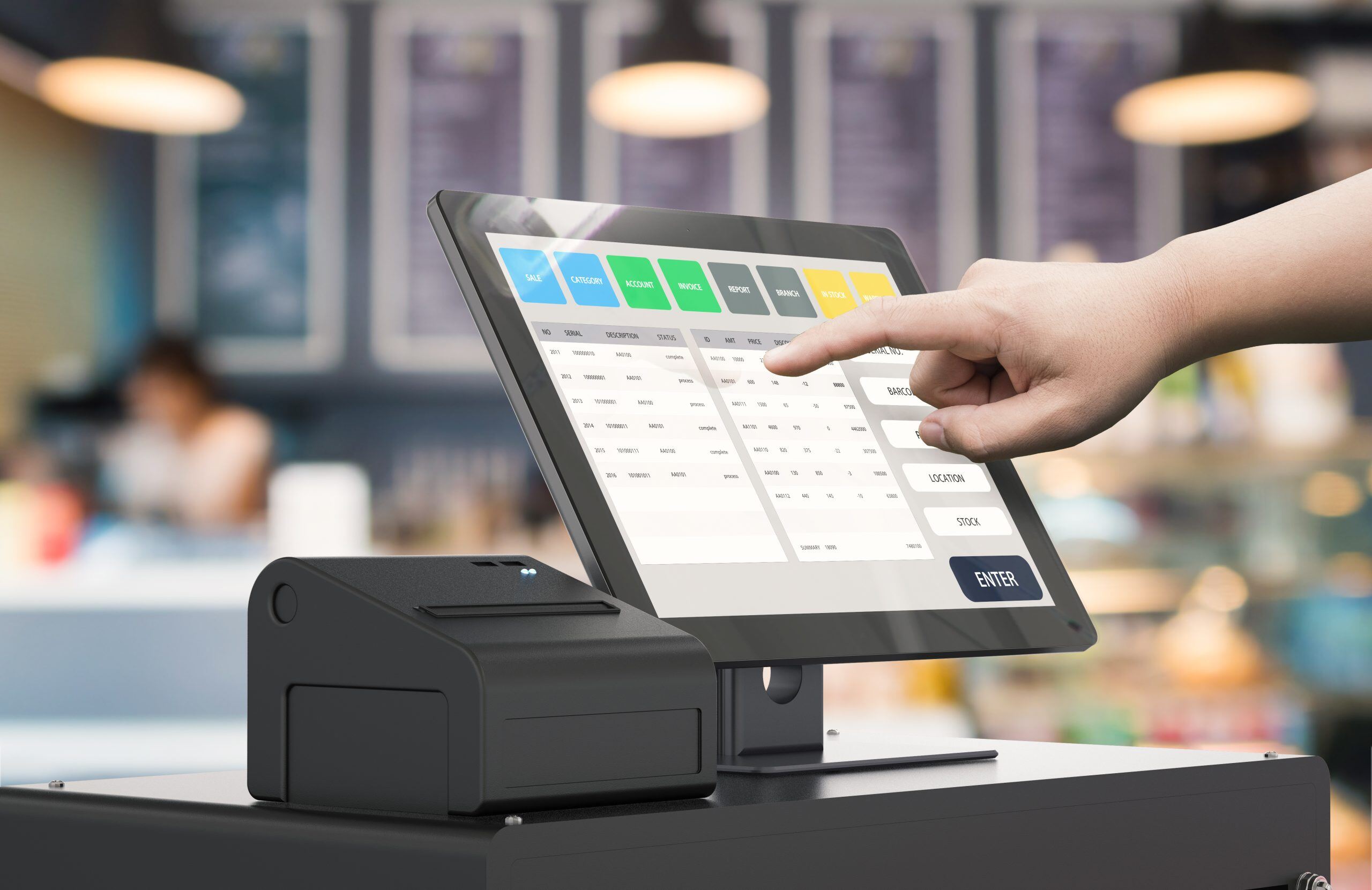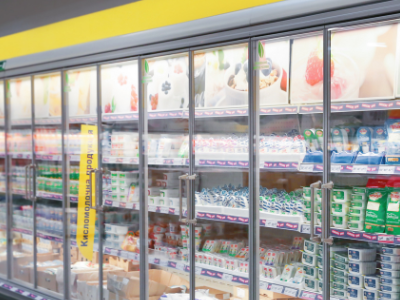There are many reasons that a grocer may be considering hiring a liquidator or hiring an auction company. Some may be considering...
There are many reasons that a grocer may be considering hiring a liquidator or hiring an auction company. Some may be considering a Retirement Sale. While others may be considering a Going out of Business Sale. Many companies want to relocate their store location to a better area of the same region. Others may have underperforming stores and they decide to not renew a lease. While many may simply decide that they need to get out of a lease early as the sales do not support the overhead. Many retailers have warehouses and back rooms that have excess equipment taking up space that could be better used for merchandise or other more productive uses. Whatever the reason for retaining a professional auctioneer or liquidator, the grocer should do some research determining the best way to sell off their used Furniture, Fixtures and Equipment. (FF&E)
No Two Projects Are Ever The Same
While some projects that come down from upper management can offer the operations team plenty of time to get the property liquidated and left broom swept, many other projects may feel more like a fire drill and offer the operations team a very short amount of time to be completed. Whatever the reason or the timeframe required to complete the project, there is a solution available to fit your specific needs. The question that needs to be asked is if you need to have a cleanout, conduct an auction or run a liquidation sale.
What Are The Differences?
A Liquidation is the process of selling off assets to pay off creditors and potentially dissolve a business. Liquidations are often referred to as a tag sale. A store fixture liquidation would typically take 14 to 21 days to market and sell off the equipment. This is completed by an onsite sales team member that negotiates each sale. An example of a liquidation would be a company selling off their inventory and their FF&E to pay down debt or possibly closing their doors. Another example would be a retailer selling off their excess inventory and underperforming fixed assets to clear space and create positive cash flow for their business.
Pros of a liquidation vs an auction
- You can sell items for what you think they are worth by placing a price tag on the items being sold
- The seller can control the prices of what the items sell for
- You can better control the timeframe for the liquidation sale
- A liquidation sale can be up and running in a very short period of time
- If you have a small number of items to be sold, this can be a cost-effective way to make it happen
Cons of a liquidation vs an auction
- Typically, 14-28 on site sales days are required for the sale down process for most stores
- Because the sale process takes longer the cleanout will also be pushed back
- Costs more money to manage the sale as you need a lead on site for the entire time of the sale
- There is no upside for the sale. Once you determine the liquidation tag price there is no bidding to drive the price up
- There will be a bright sign package all over the property to bring attention to the sale. Many towns frown upon this
- Your sales area is typically limited to the region in which people are willing to drive to the sale
- The sell-through (how much equipment you sell) is determined by the buyers that come through the doors
Auctions are the process of selling assets through a competitive bidding process. This process can be live or on-line. In certain situations, a live and online simulcast auction can also work well. Auctions are popular because many buyers feel that they can get a great "deal". Most retail auctions are considered an open auction. This is where everyone knows where the bidding stands and people can keep bidding the prices up in a competitive manner.
Pros to an auction vs a liquidation
- Multiple bidders can create a frenzy that can cause them to bid prices higher and higher until in many cases they are very close to retail
- Online auctions have a much wider sales area as they are not limited to the local buyers
- The sale process is typically completed in one day
- The customers, in many cases, pay for the removal or complete the removal
- The sell-through of the product is typically higher as items are sold for the best price regardless of the final auction bid
- Higher sell-through results in fewer dumpsters and less labor to dispose of unsold items
- There is typically more marketing time to allow for better visibility for the auctions
Cons to an auction vs a liquidation
- The time frame to get an auction "up and running" can take up to three weeks for the set up and marketing
- The time frame to get the project completed, from start to finish, including broom swept, can take 4 to 6 weeks
- As most auctions are "no reserve" auctions, items sell for what the best bid is regardless of price
- If the marketing is not done properly the number of bidders will be much lower and result in very low sales dollars
- Competitive process may deter some buyers from attending the sale
Straight Cleanouts is the process of disposing of equipment, cleaning and broom sweeping a property when a retailer has little to no time to be out of a property. Typically, this happens when either upper management makes a very last-minute decision to close a location or when the tenant loses their lease.
Pros to the straight clean out
- Process starts immediately
- Process can be completed ASAP
Cons to the straight clean out
- Cost will be much higher than an auction or liquidation
- Sales at the location will be much lower as most items get disposed of
Should someone consider holding the store closing sale themselves? Many companies have the mindset that they can conduct a Going Out of Business Sale without help from a professional liquidator. They hope to save on the expenses. In many cases these types of sales end poorly.
Cons to Running the Liquidation Sale Without Support From a Professional Company
- The distraction from managing the rest of your business
- The stress of going through the process on your own is much higher
- In many cases the costs end up more. This is because of the lack of knowledge in the process for tearing equipment apart
- The liability of managing the process falls on the retailer as opposed to the auctioneer or the auction house
- Sales returns are typically much lower as they do not have a nationwide customer database to market the equipment to
As no two projects are never the same, there is not one perfect answer as to how you should best sell your used grocery equipment. That is where partnering with a professional organization that specializes in selling pre-owned equipment makes the most sense. It has been said there is no substitute for experience. That holds very true in the auction and liquidation segments as well!
At SAM Auctions we have the experience necessary to help grocers and retailers determine the best path for selling off their used equipment. With over 30 years in business helping others resale and professionally remove their pre-owned grocery equipment we have the knowledge to help partner with retailers to determine the best way for them to sell their equipment.
Our key management team has over 80 years' experience selling used store fixtures and managing the closing process. Our top in class marketing team knows how to best utilize our top in class buyer database to obtain the best sales return for your equipment. Our operations team will work tirelessly to keep the costs as low as possible for labor, rental equipment, dumpsters and more. Our inhouse sales team supports both our on-site auctions and our on-site liquidations.
We never use a “set it and forget it” approach to selling your fixed assets and operating the cleanout process. If you would like to learn more about SAM Auctions and how we can partner with you to determine the best way to sell your used grocery equipment, visit our website at https://samauctions.com/why-sam and also https://samauctions.com/resources-video-library-v1.
If you would like to talk with one of our team of auction/liquidation professionals, please reach out today!
Recent Posts
The phrase "New Year, New Me" is commonly used to...
This Holiday Season, Unwrap the Savings and...
Is your task list getting longer and longer?...
Posts by Tag
- Corporate Sustainability (5)
- Surplus Asset Management (5)
- Auction Options (3)
- Equipment Sales (3)
- Grocery Store Auctions (3)
- Removals (3)
- Restaurant Equipment (2)
- Used Grocery Equipment (2)
- POS systems (1)
- Refrigeration Equipment (1)
- Sustainability (1)
- Used Restaurant Equipment (1)
- auctions (1)
Popular Posts
In this current economic climate it’s not...
You know Surplus Asset Management has been...
If you’re new to the auction space, you likely...





